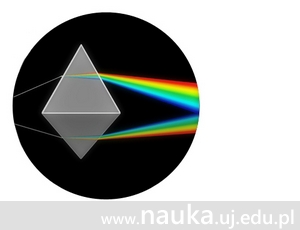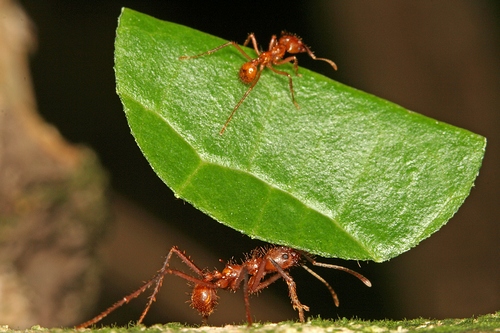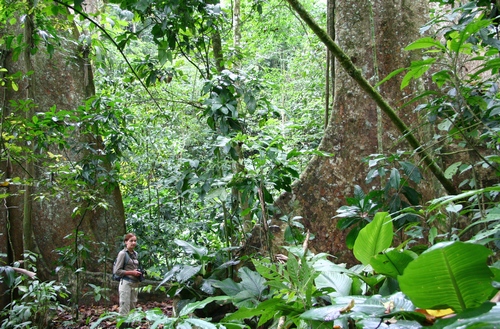
Z naukowcami o nauce (Researchers on research) is the tentative title of an upcoming science communication project: a publication composed of a series of nearly 40 interviews with Jagiellonian University scholars. We present to you a preview of one of those interviews, in which Dr Piotr Żabicki talks to Prof. Ryszard Laskowski from the Institute of Environmental Sciences (Faculty of Biology and Earth Sciences). Prof. Laskowski conducts research on the impact of industrial pollution and pesticides on microorganisms responsible for basic biogeochemical processes and animal populations (particularly invertebrates).
Science, coffee, travel
Prof. Ryszard Laskowski has been interested in biology since early childhood. He observed it for the first time when he spotted a large caterpillar on a lilac bush and became fascinated with its size and beauty. His parents (his mother was a biology teacher, his father – a linguist) were supportive of his passion and helped him establish a small butterfly farm.
 Around the age of 12, he became the youngest member of the Polish Entomological Society. When he was admitted to the Jagiellonian University, he first thought he would become an entomologist, but over the years, he developed an interest in evolutionary biology and population ecology. After that, he studied biogeochemical processes and the impact of industrial pollution and pesticides on organisms. Upon receiving his higher doctoral degree, he established the Department of Ecotoxicology, which he is in charge of to this day, although in slightly different form.
Around the age of 12, he became the youngest member of the Polish Entomological Society. When he was admitted to the Jagiellonian University, he first thought he would become an entomologist, but over the years, he developed an interest in evolutionary biology and population ecology. After that, he studied biogeochemical processes and the impact of industrial pollution and pesticides on organisms. Upon receiving his higher doctoral degree, he established the Department of Ecotoxicology, which he is in charge of to this day, although in slightly different form.
"Mostly, I'm motivated by curiosity, but I'd also very much like to find useful and helpful applications for the results of my research," Prof. Laskowski explained.
On cooperation and the benefits of an office coffee maker
The progress mankind made in the area of environmental sciences makes it impossible for one person to study them in their entirety, since there are thousands of scientific methods and hundreds of types of specialist equipment. Cooperation is therefore a crucial element in modern research.
The principles of true cooperation in research have not changed since the beginnings of science: it is still about discussion on what is important and interesting. "This is very true at the Institute of Environmental Sciences, even more so since the dissolution of its traditional structure. The institute ceased to be divided into smaller units, creating an atmosphere of teamwork and interdisciplinarity. There are, of course, plenty of research teams, but the moving between them is now much less restricted. Scientists meet over coffee, discuss their projects, and very often decide to work together," Prof. Laskowski said.
Sharing happiness
"My generation was raised on adventure books by Arkady Fiedler. They told stories of places so remote that reading about them was a lot like reading about missions to Mars. Then the world has changed and it turned out that all you need to visit them is a little persistence. When I arrived on the banks of the Orinoco river, I sat down, looked at the vast grey of its waters and thought to myself: I have made one of my dreams come true. And I'd love to share that feeling with my students," Prof. Laskowski recalled.
 His work allowed him to travel to different parts of the world. In his opinion, a true environmental scientist should make at least a brief visit to the most important biomes, such as tropical rainforest, desert, tundra, coral reef. These biomes, complemented with temperate forest and taiga, provide one with an opportunity to learn the most important aspects of natural processes.
His work allowed him to travel to different parts of the world. In his opinion, a true environmental scientist should make at least a brief visit to the most important biomes, such as tropical rainforest, desert, tundra, coral reef. These biomes, complemented with temperate forest and taiga, provide one with an opportunity to learn the most important aspects of natural processes.
"A few hours in a tropical rainforest or a desert can completely change your view on life, adaptation and natural selection. A biologist who doesn't leave lecture hall is like a surgeon who operates on mannequins. And environmental scientists has to see, touch and feel," Prof. Laskowski said.
Apart from more standard classes, Prof. Laskowski also offers his students a course in environmental photography. It is not only a hobby, but also a crucial research tool, which can be used for documentation, observation, detailed analysis etc. It all requires a certain degree of knowledge and skills – hence the course.
A key question
"It is extremely important to ask yourself two basic questions: Am I a scientist? Can I be a scientist? Being a scientist is a mixture of innate curiosity, constant need to learn, stubbornness, persistence, resilience, will, conscientiousness, and probably many more things I can't recall right now. There are, of course, certain unavoidable prerequisites: high intelligence (though not necessarily genius-level intellect – there aren't many of those) and dedication, as you will never succeed if you're not prepared for hard work," Prof. Laskowski explained.
Horizon
When asked about his dream university, Prof. Laskowski said: "My ideal university would be very close to what we already have at the Institute of Environmental Sciences, with some possible improvements. It would be a place of fair competition, friendly cooperation, fruitful discussion and mutual benefits. It would have to be sufficiently autonomous to be able to find a way around some of the more absurd legal regulations. Simply put: my ideal university is a place where a researcher can easily and pleasantly continue the true mission of universities: to teach students and advance science."
Ant and rainforest photographs: Ryszard Laskowski
Original text: www.nauka.uj.edu.pl





